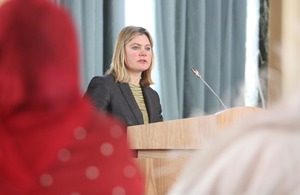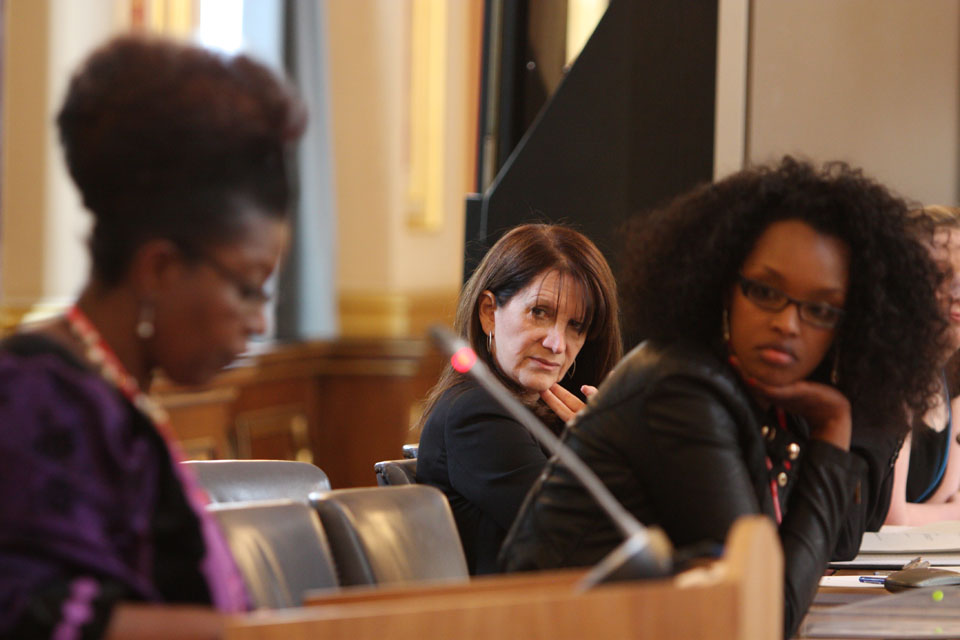Helping Somali women to take a lead role in rebuilding their country
The UK government invited members of the diaspora community to help explain the challenges Somali women face – and their ideas to overcome them

Justine Greening making the keynote speech at the Somali women's event. Picture: Patrick Tsui/FCO
Representatives of the Somali diaspora in the UK joined ministers from Britain and Somalia yesterday (29 April 2013) to help promote the position of women in the country’s society.
Justine Greening talks about the need for voice, choice and control for Somalia’s women
The meeting invited charities, independent experts and partner organisations to work together and generate new ideas that will make a real difference to the lives of Somali women.
Taking place just over a week before the Somalia Conference, the event was intended to help improve the rights of Somali women, and enable them to unlock their potential in rebuilding Somalia after so many years of conflict.
The event comprised sessions on women’s social, political and economic empowerment; combating sexual violence against women and ending female genital mutilation (FGM) and forced marriage.
Speaking at the event, Development Secretary Justine Greening said:
For the first time in a generation there is a Federal Government in Somalia that is in a position to make genuine progress on empowering women and tackling violence against women.
For so many women, the world we live in today is one of opportunity. I believe that should be the case for all girls and women. I believe that Somalia’s women are the key to Somalia’s future.
Introducing the discussions, Member of the Somali Parliament Asha Haji Elmi said:
Somali women have come far but we have a long way to go. We are one and we must speak as one voice.
Foreign Office minister Mark Simmonds led the session on violence against women and girls including sexual violence. He outlined the Foreign Secretary’s Preventing Sexual Violence Initiative including the G8 initiative to combat sexual violence against women in conflict zones.
The UK’s International Champion for Combating Violence Against Women Overseas and International Development minister, Lynne Featherstone, chaired a session on ending female genital mutilation and forced marriage. She described how the UK government was working with Somali women in the UK to develop new ways of encouraging victims to come forward and ask for help from the UK authorities.

Panellists on the female genital mutilation (FGM) and forced marriage discussion: Efua Dorkenoo, Nimco Ali and International Development minister, Lynne Featherstone. Picture: Patrick Tsui/FCO
Despite efforts by the new Federal Government of Somalia to improve security conditions for women in Somalia, the Somali Human Development Report 2012 described Somalia as ‘one of the worst countries in the world to be a woman’.
Female genital mutilation/cutting is commonplace; domestic violence is a serious problem; and 70% of reported cases of rape and sexual violence occur in internally displaced populations. The stigma attached to sexual violence and rape prevents many women from reporting crimes and often inhibits them from accessing medical and psycho-social support. Lack of access to statistics and monitoring data also make it difficult to establish the full extent of the problem.
Somalia Conference in London
The Prime Minister, David Cameron, and President Hassan Sheikh Mohamud will co-host the Somalia Conference at Lancaster House in London on 7 May. The Conference aims to provide co-ordinated international support for the Somali Government’s priorities as they rebuild their country.